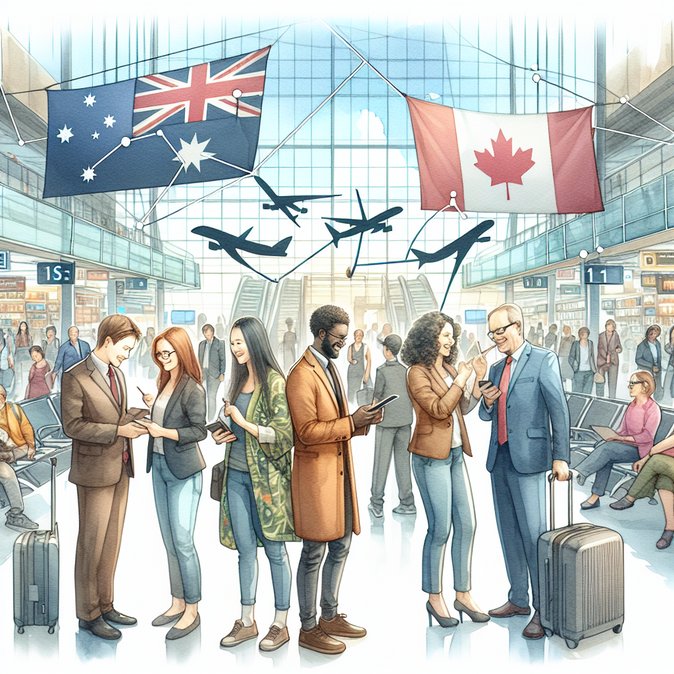
Brazil took a decisive step toward restoring visa-free travel for three of its most important long-haul tourism markets on 6 November 2025, when the Chamber of Deputies’ Foreign Affairs and National Defence Committee approved Draft Legislative Decree 206/2023. The measure would overturn Presidential Decree 11.515/23—which had re-imposed visa requirements on citizens of Australia, Canada and the United States in April—reviving the unilateral waiver that was in force between mid-2019 and March 2020.
Supporters of the proposal argue that the reinstated visa requirement came at exactly the wrong moment: just as Brazil is trying to rebuild inbound tourism and convince airlines to add capacity after the pandemic downturn. During the committee debate, rapporteur Marcel van Hattem cited Ministry of Tourism data showing the previous waiver generated an estimated 80 000 additional visitors and injected R$ 328 million (about US$ 65 million) into the economy in less than ten months. Sector associations add that each long-haul tourist spends roughly three times more than an average domestic traveler, magnifying the economic impact on hotels, restaurants and small suppliers across the country.
![Brazilian Congress Committee Endorses Visa-Free Entry for Tourists from Australia, Canada and the United States]()
If the decree is ultimately approved by the full Chamber and the Senate, travelers from the three countries would regain the right to enter Brazil for up to 90 days without applying for a consular visa or the recently launched e-Visa. Airlines and tour operators would be able to market Brazil once again as a hassle-free destination, something competitors in Chile and Argentina have used to their advantage in recent years. Corporate mobility managers also welcome the change because it removes a layer of paperwork for executives attending Brazil-based meetings or managing regional operations.
Practically speaking, companies should monitor the congressional calendar closely. The Committee on Constitution and Justice must examine the text next, followed by two plenary votes. Officials say implementation could come as early as the southern-hemisphere summer high season if the bill clears Congress before the Christmas recess. Until then, travelers from the three countries must still obtain an e-Visa.
Beyond tourism, the debate is a case study in how domestic politics shapes mobility policy. Critics of the unilateral waiver say Brazil should demand reciprocity. Proponents counter that, in a global travel marketplace, reciprocity is less important than competitiveness. With neighbouring destinations already lifting barriers, Brazil can ill afford to be an outlier if it wants the sector to reach the government’s goal of 10 million international arrivals by 2027.
Supporters of the proposal argue that the reinstated visa requirement came at exactly the wrong moment: just as Brazil is trying to rebuild inbound tourism and convince airlines to add capacity after the pandemic downturn. During the committee debate, rapporteur Marcel van Hattem cited Ministry of Tourism data showing the previous waiver generated an estimated 80 000 additional visitors and injected R$ 328 million (about US$ 65 million) into the economy in less than ten months. Sector associations add that each long-haul tourist spends roughly three times more than an average domestic traveler, magnifying the economic impact on hotels, restaurants and small suppliers across the country.

If the decree is ultimately approved by the full Chamber and the Senate, travelers from the three countries would regain the right to enter Brazil for up to 90 days without applying for a consular visa or the recently launched e-Visa. Airlines and tour operators would be able to market Brazil once again as a hassle-free destination, something competitors in Chile and Argentina have used to their advantage in recent years. Corporate mobility managers also welcome the change because it removes a layer of paperwork for executives attending Brazil-based meetings or managing regional operations.
Practically speaking, companies should monitor the congressional calendar closely. The Committee on Constitution and Justice must examine the text next, followed by two plenary votes. Officials say implementation could come as early as the southern-hemisphere summer high season if the bill clears Congress before the Christmas recess. Until then, travelers from the three countries must still obtain an e-Visa.
Beyond tourism, the debate is a case study in how domestic politics shapes mobility policy. Critics of the unilateral waiver say Brazil should demand reciprocity. Proponents counter that, in a global travel marketplace, reciprocity is less important than competitiveness. With neighbouring destinations already lifting barriers, Brazil can ill afford to be an outlier if it wants the sector to reach the government’s goal of 10 million international arrivals by 2027.












